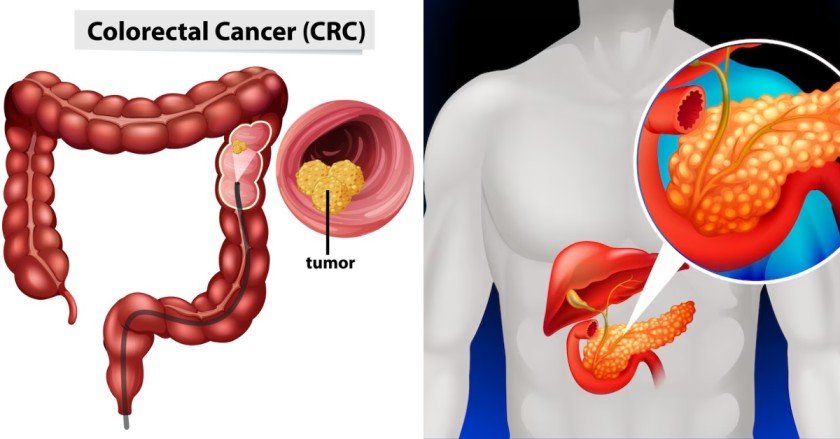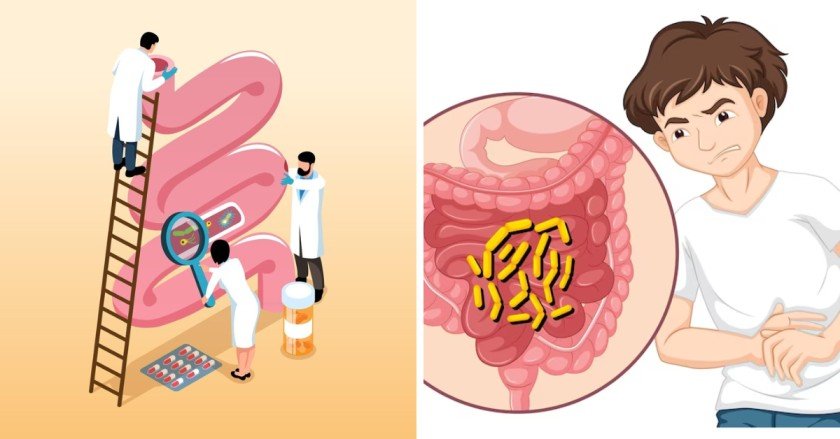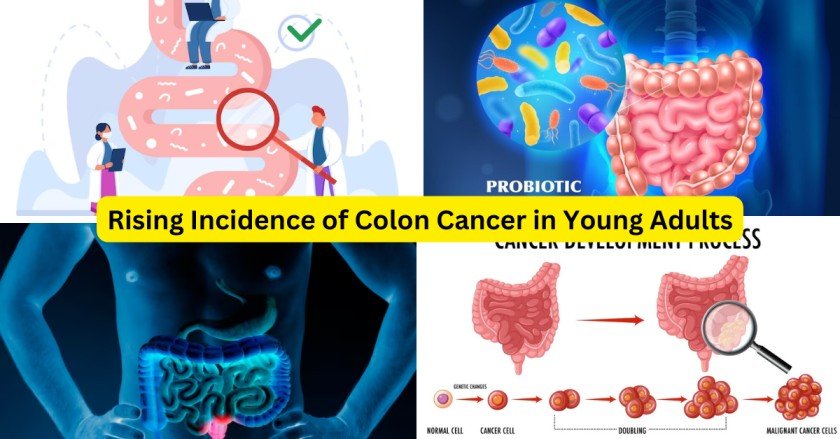Table of Contents
Understanding Colon Cancer
Colon cancer, a disease that has traditionally affected older populations, is now experiencing a concerning rise in cases among young adults. This article delves into the various factors contributing to this alarming increase, including sedentary lifestyles, poor dietary habits, exposure to environmental toxins, and genetic predispositions. The sedentary nature of modern lifestyles, characterized by long hours of sitting and limited physical activity, has been linked to an increased risk of colon cancer. Additionally, unhealthy dietary habits, such as a high intake of processed foods and low fiber consumption, can further contribute to the development of this disease. Environmental factors, such as exposure to pollutants and toxins in our surroundings, have also been implicated in the rising incidence of colon cancer among young adults. By shedding light on these multifaceted factors, this article underscores the urgency of raising awareness and promoting early screening measures to combat this growing health issue and ensure the well-being of younger generations.

The Surprising Shift in Age Demographics
This section delves into the intriguing phenomenon of the unexpected rise in colon cancer incidence among individuals under the age of 50. We will explore how this recent trend contrasts with previous demographic patterns and examine the potential implications for both patients and healthcare systems. By thoroughly examining this issue, we aim to gain a deeper understanding of the factors contributing to this alarming increase and identify strategies to mitigate its impact on public health.
Risk Factors Contributing to the Increase
In our thorough and extensive exploration, we delve deep into various lifestyle choices, environmental exposures, and genetic predispositions. By shedding light on these multifaceted risk factors and conducting in-depth research, we aim to better understand and address the alarming rise in the number of young adults who are being diagnosed with colon cancer. Our goal is to uncover valuable insights that will contribute to improved prevention, early detection, and effective treatment strategies for this concerning health issue.
The Importance of Early Detection
Emphasizing the crucial importance of early cancer detection, this particular section of the article sheds light on the significant benefits that screening tools bring in terms of potentially saving lives. It also highlights the pressing need for a lower threshold for testing among young adults, recognizing that proactive measures can make a substantial difference in identifying and treating cancer at its earliest stages, when it is most treatable.
Modern Lifestyle and Dietary Impacts
Examining how current lifestyle and dietary trends among millennials and Gen Z might be impacting their colon cancer risks is a crucial area of research. By understanding the potential connections between these factors, we can identify effective strategies to mitigate this concerning trend. It is essential to delve deeper into the specific habits, such as sedentary lifestyles, high intake of processed foods, and lack of dietary fiber, that may contribute to an increased risk of colon cancer among these younger generations. Through comprehensive analysis and targeted interventions, we can empower individuals to make informed choices and adopt healthier lifestyles that reduce their vulnerability to this disease.

How Healthcare Policies are Adapting
An in-depth exploration of how healthcare systems and policies are constantly evolving and adapting to effectively address the challenges presented by the shifting age patterns of colon cancer incidence. This comprehensive analysis delves into the innovative strategies, advancements in early detection methods, and personalized treatment approaches that are being implemented to improve patient outcomes and ultimately reduce the burden of this disease on individuals and society as a whole.
Within this exploration, we examine the intricate interplay between epidemiological trends and healthcare delivery systems. By understanding the evolving dynamics of colon cancer incidence across different age groups, healthcare professionals can tailor interventions and preventive measures to target specific populations at higher risk. Additionally, this analysis highlights the importance of early detection methods, such as genetic screening and advanced imaging techniques, in identifying precancerous lesions and facilitating timely intervention.
Moreover, the study delves into the realm of personalized treatment approaches, which takes into account individual patient characteristics, genetic profiles, and tumor biology. By embracing precision medicine, healthcare providers can optimize therapeutic strategies, ensuring that patients receive tailored treatments that maximize efficacy and minimize adverse effects.
Overall, this comprehensive analysis sheds light on the multifaceted nature of addressing colon cancer incidence in an ever-changing landscape. By staying at the forefront of innovation, healthcare systems can adapt and evolve to meet the needs of patients, improve outcomes, and ultimately reduce the burden of this disease on individuals and society as a whole.
Preventative Measures and Lifestyle Changes
In this discussion, we will delve into the actionable steps that young adults can take to proactively reduce their risk of developing colon cancer. These steps encompass a holistic approach, focusing on crucial aspects such as maintaining a healthy diet rich in fiber, engaging in regular exercise to promote overall well-being, and prioritizing routine health check-ups for early detection and prevention. By incorporating these practices into their lifestyle, young adults can empower themselves with the knowledge and tools to safeguard their long-term colon health.
The Role of Genetics in Colon Cancer
Embark on a comprehensive exploration of the genetic factors that intricately contribute to the development of colon cancer. This in-depth study will encompass various aspects, including but not limited to hereditary syndromes, cutting-edge research findings, and their specific implications for young adults who may be affected by this disease. By delving into the intricacies of these genetic influences, we can gain a deeper understanding of the underlying mechanisms at play and potentially identify novel avenues for prevention and treatment. Join us on this journey to unravel the complexities of colon cancer and pave the way for a brighter, healthier future.
Conclusion and Key Takeaways
Summarizing the critical points of the article, which strongly emphasize the utmost importance of raising awareness among young adults and healthcare providers. By fostering comprehensive knowledge and a deep understanding of health-related matters, we can empower individuals to proactively take charge of their physical and mental well-being. This, in turn, allows for early detection and intervention, leading to improved preventative health outcomes and a better quality of life.
To achieve this, it is crucial to implement educational programs that focus on health literacy, providing young adults and healthcare providers with the necessary tools to make informed decisions about their health. By equipping them with the latest evidence-based information, we can empower individuals to navigate the complex healthcare landscape effectively.
Moreover, promoting a proactive and holistic approach to healthcare is essential. This includes advocating for regular check-ups, preventative screenings, and the adoption of healthy lifestyle habits. Encouraging individuals to prioritize their health not only reduces the burden on healthcare systems but also promotes overall well-being.
By uniting and taking action, we can create a brighter and healthier future for all. Together, let’s advocate for a healthcare system that prioritizes prevention, early detection, and holistic well-being.

Frequently Asked Questions (FAQs)
What specific diet changes can reduce the risk of colon cancer in young adults?
A diet low in red and processed meats, and high in fruits, vegetables, whole grains, and sources of dietary fiber can significantly lower the risk of developing colon cancer. Limiting alcohol consumption and avoiding tobacco use are also vital. Incorporating foods rich in antioxidants and anti-inflammatory properties, like leafy greens and berries, supports overall colon health. It’s not just about removing harmful items, but about creating a balanced diet that supports the body’s natural defense systems.
How does regular exercise contribute to preventing colon cancer?
Regular physical activity is known to lower the risk of colon cancer by up to 24%. Exercise helps in maintaining a healthy weight, regulating hormones, and improving the immune system, which can all play a role in cancer prevention. It boosts digestion and reduces inflammation, which is critical for colon health. Adults should aim for at least 150 minutes of moderate-intensity or 75 minutes of vigorous-intensity exercise each week as recommended by the American Cancer Society.
What are the recommended screening methods for early detection of colon cancer?
Current guidelines recommend starting screening for colon cancer at age 45 for individuals at average risk. Screening methods include fecal occult blood tests (FOBT), stool DNA tests, flexible sigmoidoscopy, colonoscopy, and CT colonography. Colonoscopy is considered the gold standard for its ability to view the entire colon and remove polyps during the same procedure. Talk to a healthcare provider about which method is appropriate based on personal risk factors.
Can genetic testing inform individuals about their risk of colon cancer?
Yes, genetic testing can be a proactive measure for identifying an individual’s risk of hereditary colon cancer syndromes, such as Lynch syndrome or familial adenomatous polyposis (FAP). People with a family history of colon cancer or related cancers can benefit from genetic counseling to determine if genetic testing is recommended for them. These tests can lead to more tailored surveillance and prevention strategies.
Why is raising awareness of colon cancer important for young adults?
Raising awareness is crucial as it leads to better preventative measures, early detection, and treatments tailored towards this age group. Young adults often do not consider themselves at risk and may ignore symptoms or delay seeking medical advice. Awareness campaigns can educate this demographic on risk factors, the importance of a healthy lifestyle, and the need to seek timely medical consultations if symptoms arise.
How can health literacy improve outcomes for young adults at risk of colon cancer?
Improving health literacy among young adults allows them to make informed health decisions and understand the significance of screening and early detection. Educational programs that focus on the risk factors, symptoms, and benefits of lifestyle changes can mitigate the risks associated with colon cancer. Higher health literacy leads to greater engagement in preventive health behaviors.
What role can healthcare providers play in preventing colon cancer in young adults?
Healthcare providers play a pivotal role by offering guidance on risk factors, recommending appropriate screening schedules, and advising on preventive lifestyle changes. They can advocate for policy changes that support research and access to preventative healthcare services. Providers can also facilitate support systems that encourage patients to adhere to healthy behaviors and undergo regular screenings.
Read Related Article on Health:-
Which Nut Butter Has the Most Protein in 2024?
With the rising popularity of nutritious diets, many want to know – which nut butter has the most protein? This comprehensive 2024 guide analyzes various nut butters, ranking them by protein content. Beyond just protein, nut butters provide many health benefits like supporting muscle repair, weight management, and healthy digestion thanks to their nutritional profile of healthy fats, fiber, vitamins and minerals. Almond butter tops the list with 9 grams of protein per serving, giving it a slight edge over peanut butter’s 8 grams. Cashew and pistachio offer decent protein too. However, factors like nut type, serving sizes, ingredients and manufacturing impact density. Most importantly, match your personal taste preferences and diet goals when choosing a nut butter. While almond leads in protein, exploring different options brings flavor and variety. So indulge and discover your perfect nut butter match!….Read More.
 Skip to content
Skip to content










